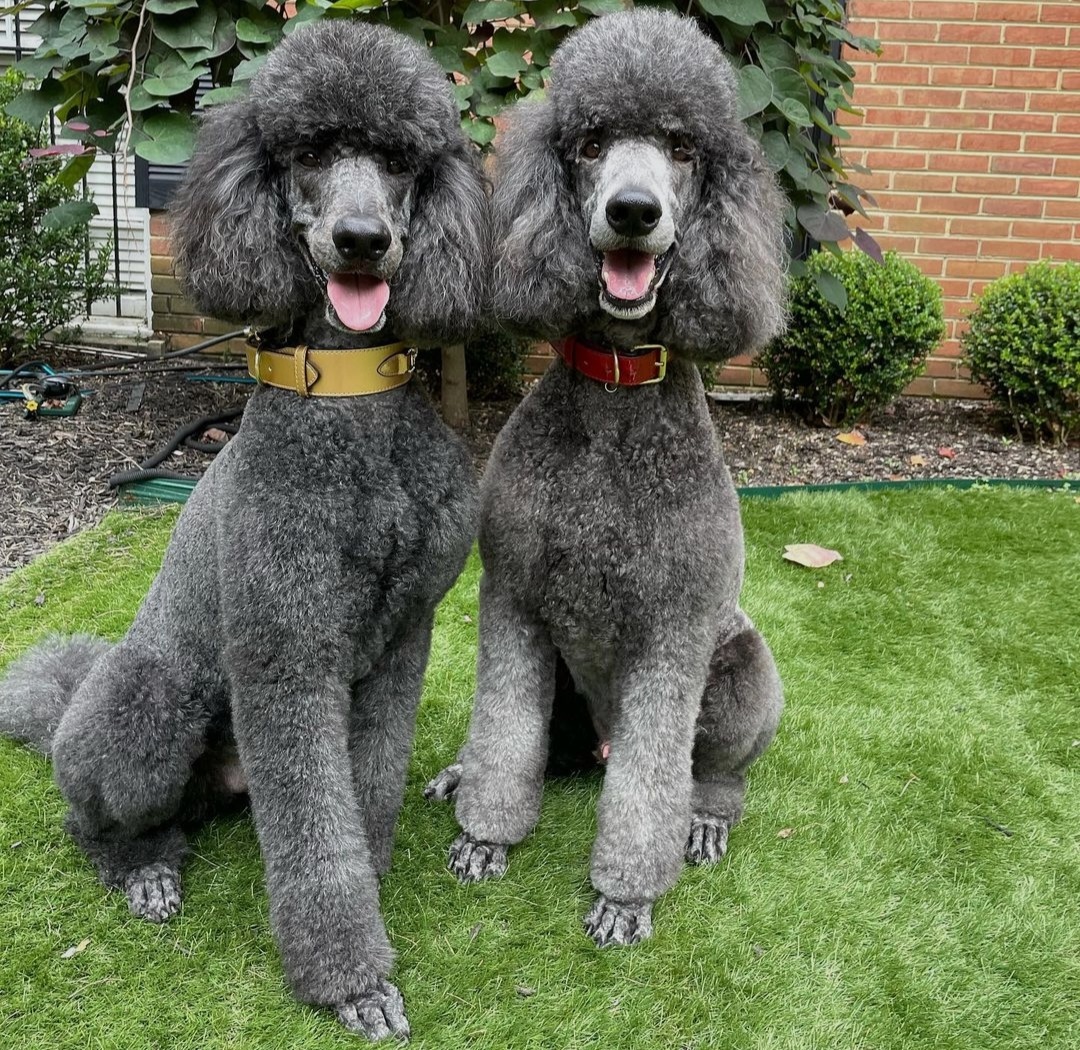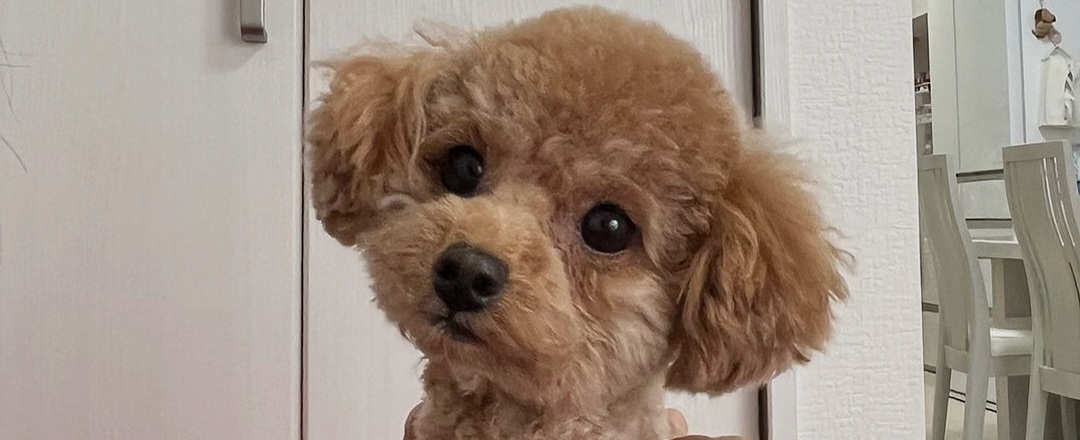As much as fluffy poodles look all cute and irresistible, too much weight can be detrimental to their health and general wellbeing. If you have an overweight poodle, it’s crucial to take the necessary steps to help it regain its average, healthy weight.
Failure to do so exposes your poodle to several health issues, including heart ailments, dog diabetes, arthritis, and more.
So, is my poodle overweight? It’s normal to be in this dilemma if you have a flabby poodle. Today, I’ll slowly walk you through the healthy poodle’s weight, how to determine if it’s obese, factors contributing to excess weight in poodles, and other essential details to help you keep track of your pup’s weight.
Causes of Overweightness in Poodles
Your poodle can gain excess weight for various reasons. The number one reason for unhealthy weight in poodles is poor diets. Most of us usually don’t realize how those big bowls of dog food and irregular feeding schedules affect our furry buddy’s life.
Besides overfeeding, other factors can cause a poodle to be obese, and they include:

1. Hereditary
In some cases, dog breeds tend to be predisposed to obesity, including poodles. Poodles are more likely to be naturally overweight if their parents were both overweight. If diet and other causes are ruled out, hereditary is the most probable cause of your poodle’s unhealthy weight. Luckily, you can combat this type of obesity by proper diet, regular exercise, and other recommendable advice from your vet.
2. Lack of Exercise
All dogs need daily exercises for mental stimulation and burning off excess calories. If your poodle’s calorie intake is higher than the burning rate, it’s more likely to be obese. As a small breed, poodles don’t require long periods of exercise and games. A 30-minute walk every day or 20 minutes of daily exercise will suffice. Your poodle requires a regular activity schedule to stay healthy.
3. Hormones
Studies show that dogs can gain weight due to hormonal imbalances. This effect is usually associated with Cushing’s disease or a thyroid disorder. Therefore, it’s essential to seek a vet’s guidance when your pet is obese to detect such causes/problems easily.
4. Slower Metabolism
As dogs grow older, their metabolism tends to reduce. A slower metabolism can lead to weight gain in both humans and dogs. Finding the correct diet for your dog is critical as it grows up.
5. Neutering or Spaying
Studies show that neutered or spayed animals tend to have a slower metabolism and are more likely to gain weight. If you feed your neutered/spayed poodle the same way as an intact dog, it will gain more weight. Intact pets tend to be active since they have estrogens and androgens stimulating their activity and roaming, components neutered dogs lack. The exact cause of poodle’s weight gain can be anonymous. However, the common reasons for that occurrence are mentioned above. It’s advisable to observe them keenly and make the most appropriate choices to ensure your poodle’s health.
How to Tell Your Poodle is Overweight
After knowing the various likely causes of your puppy’s obesity, you must be eager to find answers to the main question, is my poodle overweight? First, it’s important to note that poodles come in three different sizes, toy, miniature, and standard. Healthy toy poodles weigh around 6-9 pounds, miniature poodles weigh 15-17 pounds, while standard poodles weigh approximately 45-70 pounds. However, these weights can differ for various reasons like diet, hereditary, age, and a dog’s activity level. Some of the ways to tell if your poodle is overweight are:
1. Try to Feel The Ribs
The prominence and feel of a dog’s ribs are the primary indicators of its weight status. If your poodle’s ribs aren’t too prominent, and you can touch/feel them without pressing very hard, then it’s fit. You’ll know it’s overweight if you can’t feel the ribs quickly.
2. Examine Your Pup From The Side
Your poodle will also be overweight if it has a swinging/sagging stomach. It should be relatively raised and not oval-shaped and flabby. Your poodle’s stomach and the chest shouldn’t be of the same level. It should be tucked up. You should also tell where your poodle’s hips and ribs start for it to be fit.
3. Look For Fat Pads
You should check if your poodle has fat pads on some regions of its body, particularly below its tail’s base and above its hips. If it’s overweight, you won’t be able to feel the bone below the tail. It will also have fat pads above its hips.
4. Examine Its Activeness
Dogs are usually energetic and highly playful when healthy and comfortable. They’ll love following you everywhere you go and be first to greet you when you come home. If your poodle becomes less active and lazy to move/indulge in physical activities, then it may be because of excess weight gain.
5. Check For Breathing Difficulty
If your poodle has strenuous breathing after a simple activity or movement, its weight should be a concern.
How to Help Your Poodle Cut Weight
If you find your poodle is overweight, it’s important to start helping it lose weight as soon as possible. You can reach out to a veterinarian for advice. Alternatively, you can follow the below steps for an effective weight loss routine:
- Adopting a weight loss diet -When using such a diet, you should follow the instructions given on the food bags.
- Reducing the food amount you give your poodle
- Measuring the food your poodle takes
- Increasing the exercise level of your poodle
- Cutting on treats 6. Avoid feeding your poodle home-made/people foods since they are rich in high calories amount
Conclusion
Keeping an eye on your poodle’s weight is crucial if you want to have a long healthy life. Too much weight can expose your dog to many health problems. As the owner, it’s your duty to ensure your dog gets a healthy lifestyle to prevent it from becoming obese. If your puppy is overweight, you should determine the various causes for the occurrence and take the necessary steps to help it. It’s also best to regularly measure your poodle’s weight to keep track of its health, something you can easily do with scale.

